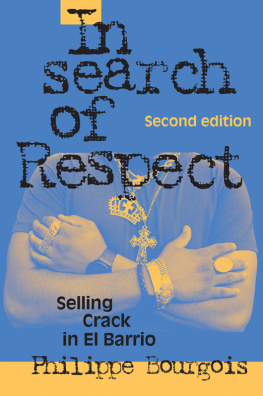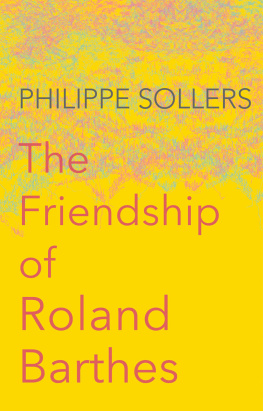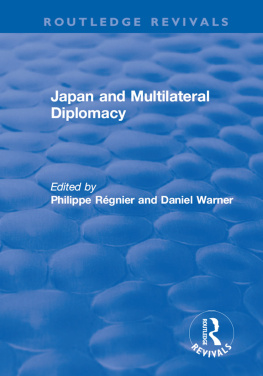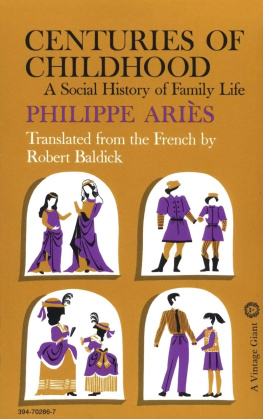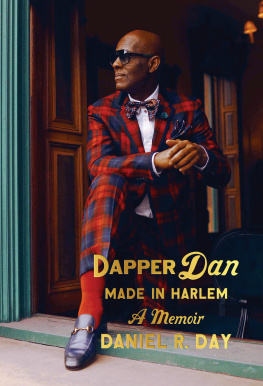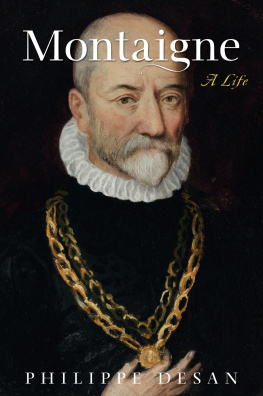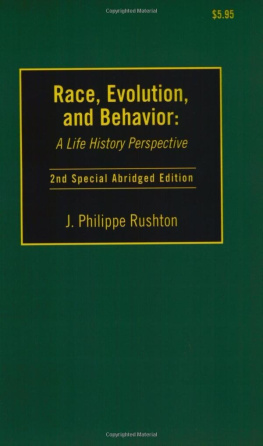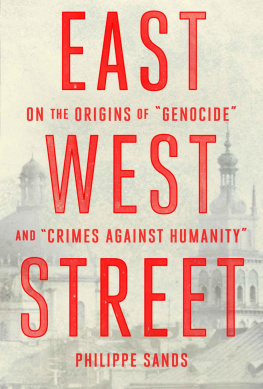ACKNOWLEDGMENTS
This book could not have been written without my friends and neighbors in El Barrio who welcomed me so openly and generously. I changed everyones name and camouflaged the street addresses to protect individual privacy. Above all, I thank my close friend whom I have called Primo in these pages. He followed my work since the beginning, and he guided much of it. His comments, corrections, and discussions on the half-dozen versions of the manuscript that he read and/or listened to were most helpful. The other major character, whom I have called Caesar, also provided me with analytical insights and critiques on various early drafts of this book. Similarly, Candy was extraordinarily helpful and supportive throughout the fieldwork process and in the early stages of writing. Mara provided me with comments and moral support right through the final phases of writing the book. More recently, Esperanza and Jasmine, who appear only in the epilogue to this second edition, greatly facilitated my follow-up visits to El Barrio by making me feel warmly welcome in their homes and among their extended families following the publication of the first edition.
I also want to thank the following institutions for their generous financial support: the Harry Frank Guggenheim Foundation, the Russell Sage Foundation, the Social Science Research Council, the Ford Foundation, the National Institute on Drug Abuse (grants R01 DA10164 and R03 DA06413), the Wenner-Gren Foundation for Anthropological Research, the United States Bureau of the Census, and at San Francisco State University Marilyn Boxer, Brian Murphy, and Joe Julian. I appreciated having institutional research affiliations with The Research Institute for the Study of Man, the Centro de Estudios Puertorriqueos of Hunter College, Columbia Universitys School of Architecture and Urban Planning, and San Francisco State Universitys Urban Institute and Anthropology Department. Of course, I am most grateful for the faculty position I hold in the Department of Anthropology, History, and Social Medicine at the University of California, San Francisco, which provides me with the long-term financial and logistical security that permits me to write books on social suffering and injustice in the United States.
I am grateful to Marc Edelman, Robert Merton, and the late Eric Wolf, who gave generously of their time to provide me with detailed critiques of substantial portions of the manuscript. No one comes close, however, to the brilliance, precision, and inspired obsession of Loc Wacquant when it comes to editing text and critiquing intellectual argument. The first half of this book was practically rewritten by him in a forty-eight-hour nonstop binge of editing that only he would have the energy, clarity of mind, and delicacy of plume to deliver just in time. Dozens of other friends, students, colleagues, and mentors also read drafts of this book or at least heard portions of its central arguments. Many useful insights or points of information were conveyed to me in informal conversations after seminars, classes, and conferences, or even at parties. Some of the feedback was critical, and I did not always incorporate it in the text, but I am thankful for its constructive engagement. In this vein, I thank the late Pierre Bourdieu, who made possible the French translation of this book in his series, and who, more importantly, provided so much clarity and inspiration with his critique of the practice of symbolic power in reproducing hierarchy; Karen Colvard, John Devine, Amy Donovan, Eloise Dunlap, Angelo Falcon, Jerry Floersch, Charles Hale, Arthur Kleinman, Antonio Lauria-Petrocelli, Gloria Levitas, Roberto Lewis-Fernandez, Jeff Longhofer, Peter Lucas, Susan Meiselas, Jim Quesada, Clara Rodriguez, the late Ulysses Santamaria, Saskia Sassen, Nancy Scheper-Hughes, Carol Smith, Carl Taylor, Frank Vardi, Joel Wallman, Eric Wanner, Terry Williams, William Julius Wilson, and my grandmother, the late Peggy Regler.
I owe a great deal to Mark Granovetter, the series editor at Cambridge, who intervened on my behalf with comments and support at a crucial phase in the writing when I was despairing of ever finishing. My in-house editors at Cambridge Emily Loose, Russell Hahn, and especially Elizabeth Neal, followed by Mary Child and Alia Winters were also extremely helpful. The copy editors, Nancy Landau and Phyllis L. Berk, greatly improved the final quality of the text, catching several dozen embarrassing errors and cleaning up an untold number of awkward sentence constructions.
The original manuscript could not have been produced without the typing, emotional support, and ethical backbone of Harold Otto and Ann Magruder, who both became respected friends despite working side by side with me for so many anxiety-filled months. Others who provided crucial research and logistical support at the Russell Sage Foundation include Eileen Ferrer, James Gray, Clay Gustave, Pauline Rothstein, Madge Spitaleri, Camille Yezzi, and Adrienne Zicklin. At San Francisco State University, Thoreau Lovell kindly provided me with after-hours computer access and frequent technical advice. At the Research Institute for the Study of Man, Florence Rivera Tai was of great help and friendship.
Reading Piri Thomass Down These Mean Streets when I was in high school planted the seed for this book. I owe him a great debt for making me confront poverty, racism, and drugs in the city where I grew up. It is a special honor and pleasure for me, consequently, to have his permission to publish in the front the fax he sent me after reading a manuscript version of this book.
Finally, I want to thank my family. I will always be grateful to Charo Chacn-Mndez for immigrating from Costa Rica directly to El Barrio, where we married at the very beginning of this research project. Her help was invaluable during our residence in the neighborhood. I apologize for imposing so much anxiety on her when I regularly stayed out all night on the street, and in crackhouses, for so many years. I hope that is not one of the reasons we are no longer together. If it is, I regret it profoundly. Our son, Emiliano (Nano), loved El Barrio. He was never intimidated by the street. His cerebral palsy was first diagnosed when we had no health insurance by a brusque, harried intern in a free clinic a few blocks from our tenement. I suspect that Nanos tremendous self-confidence, and his wonderful social skills, were partially forged by the success with which he carved respect for himself from even the toughest street hustlers on our block. He melted everyones heart while proudly learning to use his walker over broken sidewalks littered with crack vials. Better yet, all through the often frustrating process, full of scrapes and tumbles, Nano exuded that magical joy-of-living that only two-and-something-year-olds know the secret to. He helped me appreciate some of the joys of life on the street. The bright flash in his eyes continues to guide me a dozen years later as he enters adolescence full of energy, appreciation, and empathy for most everyone around him.
My mother and father were also supportive throughout the research and writing of this book. I am sure I was deeply shaped by the fact that my mother violated apartheid almost every weekday during the 1980s through the 1990s while working with literacy programs in the South Bronx. In the same vein, my father provided me with the wonderful experience of growing up as a New Yorker in a bicultural household. His typically French trenchant criticisms of U.S. culture, and especially his abhorrence of the excesses of racism and class inequality in New York City, were a wonderful antidote to the stultifying ideological perspectives that bombarded those of us who grew up at the height of the Cold War in the United States. Perhaps the fact that he escaped on June 7, 1944, from I. G. Farben Community Camp Dwory at Auschwitz instilled in me a commitment to document institutionalized racism in my own lifetime, especially in my own hometown. He may also have first sensitized me to addication when I was a teenager by telling me, as we were sharing a cigarette, I was one of the stupid ones in the camps who used to trade his bread for tobacco. More importantly, my fathers ongoing humble outrage over the fact that so many of those living directly downwind from the Auschwitz gas chambers himself included managed to either ignore or joke about the smell of burning human flesh at the height of the Holocaust motivated me, I think, to write this book on the everyday violence of U.S. apartheid at the turn of the twenty-first century.

